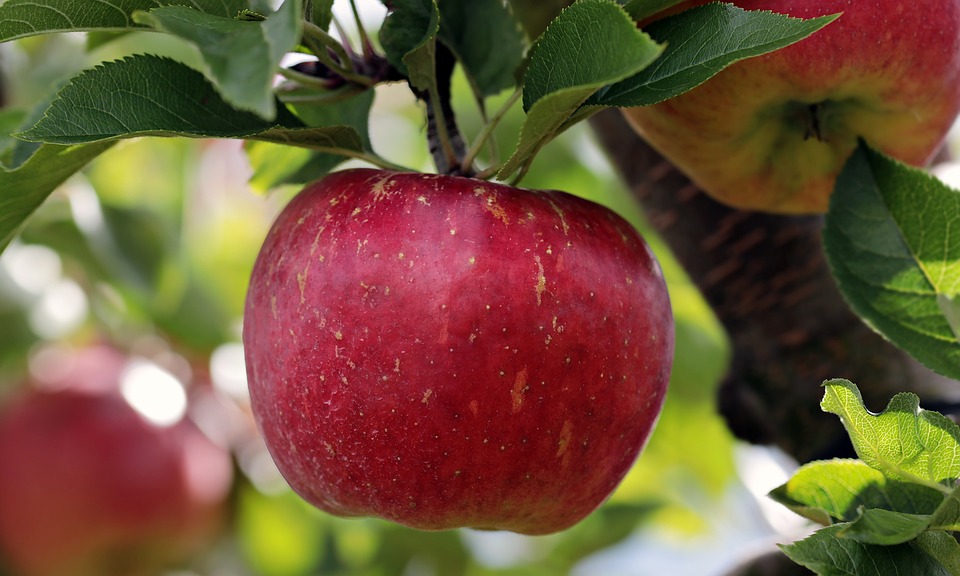gastric sleeve Pre Op Diet Meal Plan: A Comprehensive Guide
Introduction:
Preparing for gastric sleeve surgery requires following a carefully planned pre-operative diet. This meal plan is essential for reducing the size of the liver, minimizing surgical risks, and ensuring successful weight loss after the procedure. In this article, we will provide you with a detailed gastric sleeve pre-op diet meal plan, covering everything from what to eat to how to make the transition smoother.
1. Understanding the Importance of Pre-Op Diet
Before we delve into the meal plan, let’s understand why the pre-operative diet is crucial. The main goal of this diet is to shrink the size of the liver, which helps the surgeon during the procedure and reduces the risk of complications. Additionally, it prepares your body for the significant dietary changes post-surgery, ensuring a smoother transition and better weight loss outcomes.
2. Duration of the Pre-Op Diet
The duration of the pre-op diet varies depending on the surgeon’s recommendation and your individual circumstances. Typically, it lasts for about two to three weeks before the surgery. It is essential to strictly follow this diet plan during this period to achieve the desired results.
3. Meal Plan for Gastric Sleeve Pre-Op Diet
Now, let’s take a closer look at the meal plan for a gastric sleeve pre-op diet:
3.1. Phase 1: Liquid Diet
During the first phase, which usually lasts for a few days, you will be on a liquid diet. This helps to reduce the size of the liver and kick-start the weight loss process. You can consume clear broths, sugar-free gelatin, protein shakes, and plenty of water. It is essential to avoid carbonated beverages, sugary drinks, and high-calorie liquids.
3.2. Phase 2: Pureed Foods
Once you have successfully completed the liquid diet phase, you will move on to the pureed food phase. This phase usually lasts for about one to two weeks. Your diet will consist of foods that are easily blended or mashed, such as pureed vegetables, lean meats, and low-fat dairy products. It is crucial to avoid foods high in sugar, fat, or fiber during this phase.
3.3. Phase 3: Soft Foods
After the pureed food phase, you will progress to consuming soft foods. This phase helps your digestive system adapt to solid foods before the surgery. You can include foods like cooked vegetables, soft fruits, lean proteins, and low-fat dairy products. It is important to chew your food thoroughly and take small bites to avoid any discomfort.
3.4. Phase 4: Transition Diet
In the final phase of the pre-op diet, known as the transition diet, you will gradually reintroduce solid foods into your diet. This phase typically lasts for a few days before the surgery. You can include foods like grilled chicken, fish, steamed vegetables, and healthy carbohydrates. However, it is crucial to avoid high-fat, fried, or processed foods.
3.5. General Guidelines
Regardless of the phase, there are some general guidelines to follow throughout the pre-op diet:
– Stay hydrated by drinking plenty of water throughout the day.
– Avoid sugary foods, including sodas, candies, and desserts.
– Limit your intake of fats and oils.
– Choose lean sources of protein, such as chicken, fish, and tofu.
– Consume a variety of fruits and vegetables for essential nutrients.
– Avoid alcohol and caffeinated beverages.
4. Tips for a Smooth Transition
Transitioning to a gastric sleeve pre-op diet may not be easy, but with the following tips, you can make the process smoother:
– Gradually reduce portion sizes before starting the pre-op diet.
– Seek support from a registered dietitian or nutritionist for personalized guidance.
– Experiment with different flavors and seasonings to make your meals more enjoyable.
– Plan your meals in advance to avoid cravings and unhealthy food choices.
– Stay motivated by reminding yourself of the long-term benefits and improved quality of life after the surgery.
conclusion:
Following a gastric sleeve pre-op diet meal plan is essential to minimize surgical risks and achieve successful weight loss outcomes. By understanding the importance of this diet, following the recommended phases, and implementing the provided tips, you can prepare your body for the surgery and pave the way for a healthier future. Remember to consult with your healthcare team for personalized advice and guidance throughout this journey.
Most Common Questions About Gastric Sleeve Pre Op Diet Meal Plan
1. What is a gastric sleeve pre-op diet meal plan?
A gastric sleeve pre-op diet meal plan is a specific eating regimen that individuals must follow before undergoing gastric sleeve surgery. This plan is designed to reduce the size of the liver, which makes the surgery safer and easier to perform. It typically involves a low-calorie, low-carbohydrate diet that helps patients lose weight and shrink their liver before the operation.
The three most important pieces of information about a gastric sleeve pre-op diet meal plan are:
1. It aims to reduce the size of the liver before surgery.
2. It is typically a low-calorie and low-carbohydrate diet.
3. It helps patients lose weight prior to the operation.
2. How long does the pre-op diet last?
The duration of the pre-op diet can vary depending on individual circumstances and the recommendations of the healthcare provider. In general, patients are advised to follow the pre-op diet for two to four weeks before the gastric sleeve surgery. The duration may be adjusted based on the patient’s weight loss progress and the condition of their liver.
The three most important pieces of information about the duration of the pre-op diet are:
1. It typically lasts for two to four weeks.
2. The duration may be adjusted based on individual circumstances.
3. The condition of the patient’s liver is taken into consideration when determining the length of the pre-op diet.
3. What foods are allowed on the pre-op diet?
The specific foods allowed on a gastric sleeve pre-op diet may vary depending on the healthcare provider’s recommendations. However, common guidelines include consuming lean sources of protein such as chicken, fish, and tofu. Non-starchy vegetables like broccoli, spinach, and cauliflower are also encouraged. Additionally, patients may be allowed to have limited amounts of fruits, whole grains, and low-fat dairy products.
The three most important pieces of information about the foods allowed on the pre-op diet are:
1. Lean sources of protein like chicken, fish, and tofu are encouraged.
2. Non-starchy vegetables such as broccoli, spinach, and cauliflower are allowed.
3. Limited amounts of fruits, whole grains, and low-fat dairy products may be included in the diet.
4. What foods should be avoided on the pre-op diet?
To ensure the success of the gastric sleeve surgery, certain foods should be avoided during the pre-op diet. These typically include high-calorie and high-carbohydrate foods such as sugary snacks, desserts, sodas, and processed foods. Fatty and fried foods, as well as alcohol, are also usually prohibited. It is important to strictly adhere to the guidelines provided by the healthcare provider to achieve optimal results.
The three most important pieces of information about the foods to be avoided on the pre-op diet are:
1. High-calorie and high-carbohydrate foods like sugary snacks and desserts should be avoided.
2. Fatty and fried foods, as well as alcohol, are typically prohibited.
3. Strict adherence to the guidelines is crucial for optimal results.
5. Why is the pre-op diet important?
The pre-op diet plays a crucial role in the success of gastric sleeve surgery. It helps to reduce the size of the liver, making the operation safer and easier for the surgeon to perform. Additionally, it aids in weight loss, which can improve overall health and reduce surgical risks. The pre-op diet also prepares patients for the post-operative dietary changes they will need to make, promoting long-term weight loss and a healthier lifestyle.
The three most important pieces of information about the importance of the pre-op diet are:
1. It reduces the size of the liver, making the surgery safer.
2. It aids in weight loss and improves overall health.
3. It prepares patients for post-operative dietary changes and promotes long-term weight loss.
Common Misconceptions About Gastric Sleeve Pre Op Diet Meal Plan
1. Gastric Sleeve Pre Op Diet Meal Plan is Not Necessary
One common Misconception about the gastric sleeve pre-op diet meal plan is that it is not necessary. Some people believe that they can go into the surgery without following a specific diet plan and still achieve successful results. However, this is far from the truth. The pre-op diet plays a crucial role in preparing the body for surgery, reducing the size of the liver, and minimizing the risk of complications during the procedure. It also helps to jumpstart weight loss and prepare the patient for the post-op diet.
2. The Pre Op Diet is Only for Weight Loss
Another misconception is that the gastric sleeve pre-op diet meal plan is solely designed for weight loss purposes. While weight loss is a significant component of the pre-op diet, its primary purpose is to prepare the body for surgery. The diet helps to shrink the liver, which is often enlarged in individuals who are overweight or obese. By reducing the liver size, surgeons can have better access to the stomach during the procedure, making it safer and more effective. Weight loss is just a beneficial side effect of following the pre-op diet.
3. Following the Pre Op Diet is Easy
Many individuals underestimate the difficulty of following the gastric sleeve pre-op diet meal plan. Some perceive it as a simple task that can be accomplished without much effort. However, the reality is that the pre-op diet can be challenging both physically and mentally. It often involves strict dietary restrictions, such as consuming a low-calorie, high-protein diet while eliminating certain foods and beverages. Additionally, it requires a strong commitment and discipline to stick to the diet for an extended period, which can be difficult for some individuals.
4. The Pre Op Diet is the Same for Everyone
There is a common misconception that the gastric sleeve pre-op diet meal plan is the same for every individual preparing for the surgery. However, this is not the case. The pre-op diet is often tailored to the specific needs and health conditions of each patient. Factors such as the patient’s weight, overall health, and dietary preferences are taken into consideration when creating an individualized pre-op diet plan. It is essential to consult with a healthcare professional or a registered dietitian to develop a personalized pre-op diet that meets your specific requirements.
5. The Pre Op Diet is Only Temporary
Some people mistakenly believe that the gastric sleeve pre-op diet meal plan is only temporary and can be discontinued after the surgery. However, the pre-op diet is just the beginning of a lifelong commitment to a healthy eating lifestyle. Following the surgery, patients are required to adhere to a post-op diet plan that gradually reintroduces solid foods while still prioritizing protein intake and portion control. The post-op diet is crucial for long-term weight loss success and maintaining the results achieved through the gastric sleeve surgery.
In conclusion, there are several common misconceptions about the gastric sleeve pre-op diet meal plan. It is essential to understand that the pre-op diet is necessary for preparing the body for surgery, not just for weight loss. Following the diet plan can be challenging, and it is not the same for every individual. Moreover, it is crucial to recognize that the pre-op diet is just the beginning of a lifelong commitment to a healthier lifestyle. By debunking these misconceptions, individuals can have a better understanding of the importance and significance of the gastric sleeve pre-op diet meal plan in achieving successful outcomes.
Gastric Sleeve Pre Op Diet Meal Plan
#preop #diet #gastric #sleeve #surgery #typically #involves #lowcalorie #highprotein #diet #shrink #liver #reduce #risk #complications #surgery #sample #meal #plan #preop #diet

